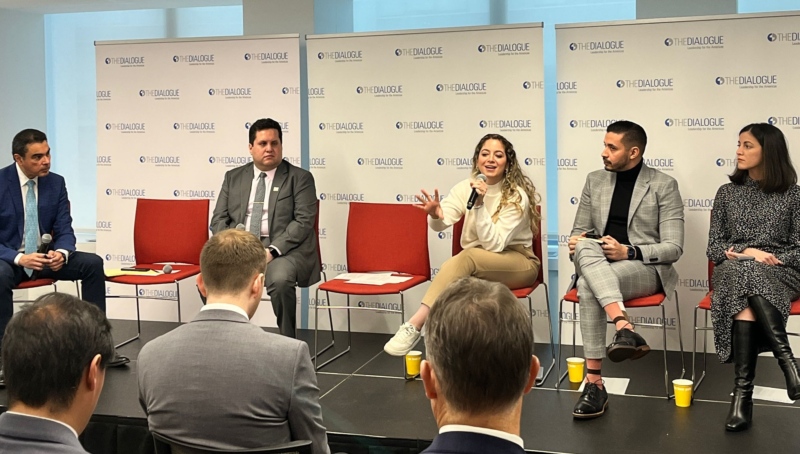Can Spain Solve the Cuba Problem?
By all accounts, Spain wants to bring change to the European Union’s Cuba policy. In so doing, it is tackling a foreign policy challenge that often sheds more heat than light.
This post is also available in: Español
In the midst of democratic decline in the region, young people are emerging as agents of change. Their active participation not only represents a fresh and vibrant voice in regional politics but also offers a new perspective and focus to address the challenges facing the region. Commemorating Human Rights Day, the Inter-American Dialogue, along with the Organization of American States (OAS) and the Embassy of Liechtenstein to the United States, engaged in dialogue with young Latin American leaders from Colombia, Guatemala, Ecuador, and Cuba.
In his opening remarks, Ambassador Georg Sparber of the Principality of Liechtenstein emphasized the active role of young people as decision-makers today in promoting democracy, not just for the future. Regarding the most urgent threats to democracy in the region, Tamara Taraciuk Broner, director of the Rule of Law Program at the Dialogue, pointed out that it is no longer military coups but democratically elected leaders who disregard fundamental guarantees such as judicial independence and electoral integrity. "Young people are key actors in identifying early warnings to prevent further democratic backsliding," she added.
Initiating the dialogue with Latin American youth leaders, Sebastián Flores, co-founder and director of the Comparlante Foundation in Ecuador, emphasized the growing political participation of young people in the region, describing it as viral and adapted to contemporary communications. Meanwhile, María del Mar Jaramillo, director and founder of the Soy Oportunidad Foundation in Colombia, highlighted the importance of generating projects that incorporate young people and other non-traditional actors, such as the private sector.
Regarding the role of youth in promoting democracy, Walter Corzo, executive director of Diálogos in Guatemala, highlighted the case of his country and the fundamental role that youth played in ensuring that electoral results were respected in the face of arbitrary attempts to prevent Bernardo Arévalo from taking office. However, he emphasized that there is still a pending debt to address youth needs and promote their political participation.
This debt also includes the absence of guarantees and actions by the international community for young people to exercise their participation rights, especially in the face of dictatorships or authoritarian governments, added Rosa María Payá, founder of Cuba Decide and the Latin American Youth Network for Democracy in Cuba. "There are over 200 young people killed in Nicaragua and hundreds in political prison in Cuba," she noted. To this, she added the recent arrests and arrest warrants for Venezuelan opposition leaders, including Pedro Urruchurtu, a member of María Corina Machado's team.
By all accounts, Spain wants to bring change to the European Union’s Cuba policy. In so doing, it is tackling a foreign policy challenge that often sheds more heat than light.
When Haiti was struck by a devastating earthquake, the administration of U.S. President Barack Obama quickly absorbed the depth of the tragedy and necessity of a robust U.S. response. Unless the U.S. adopts a proactive role, Haiti’s fragmented political landscape threatens to deteriorate into a political vacuum that will compound the current crisis.
Politics is swirling everywhere. Such are the ways of democracies, especially when oppositions come alive and defeat or threaten incumbents.
 Young Americas Business Trust
Young Americas Business Trust